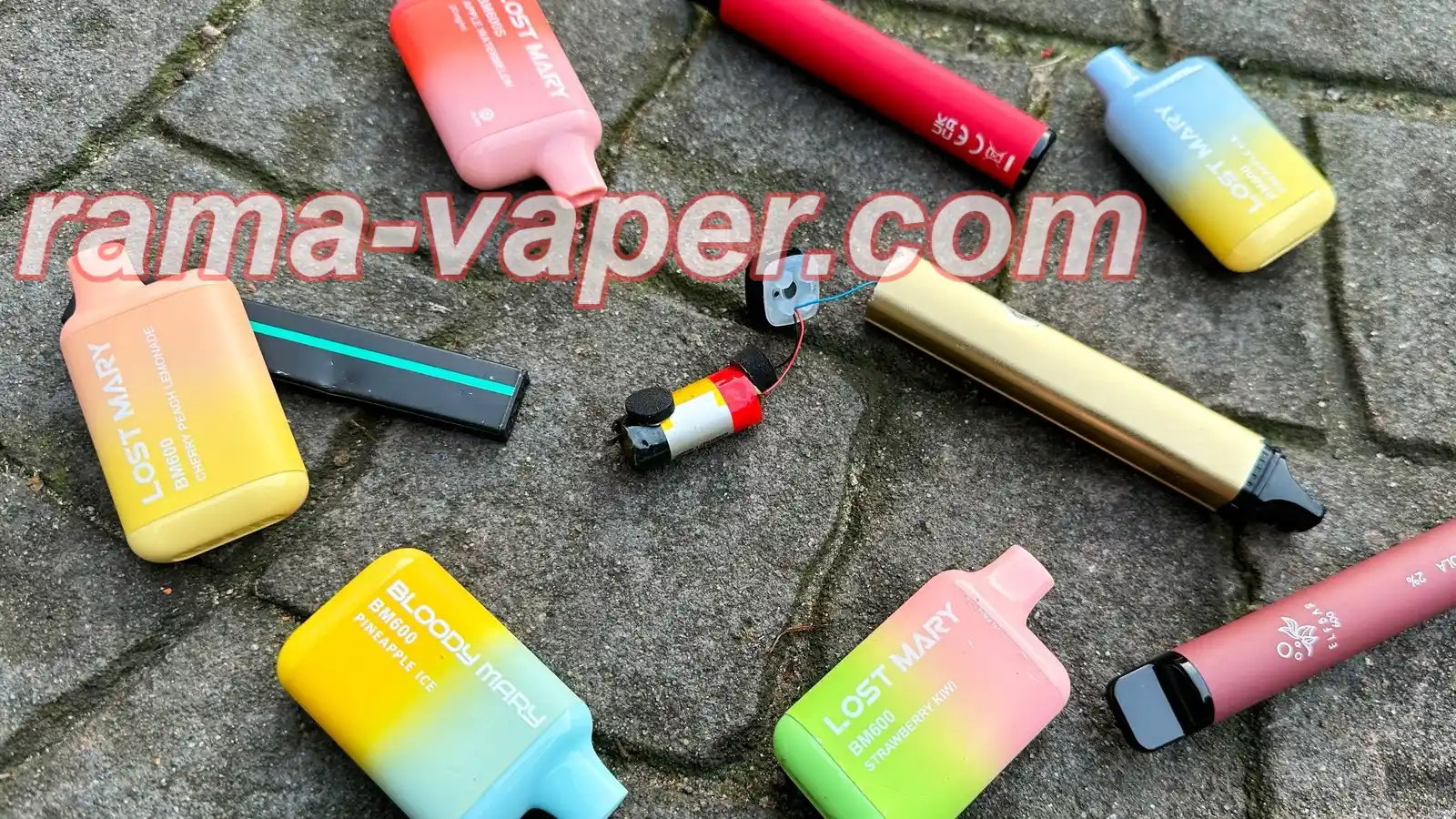Game-Type Vapes Spark Outrage in the Netherlands, and Global Regulatory Shifts on Vaping Products
Game-Type Vapes Spark Outrage in the Netherlands, and Global Regulatory Shifts on Vaping Products
Vaping, once considered a cool alternative to smoking, has recently faced growing scrutiny worldwide, with regulators tightening laws and health experts raising alarms about potential dangers. The vaping industry continues to evolve, introducing innovative products aimed at attracting younger users. But with these new products comes increased concern, particularly when it comes to addictive behavior and public health. A key story in this ongoing debate has emerged in the Netherlands, where a new type of vape, featuring both music and gaming functionalities, has sparked outrage among government officials and health professionals. This has led to broader discussions about how to regulate vaping products globally, especially in countries like Bangladesh, the U.S., and Moldova.
The Netherlands: "Smart Vapes" Stir Controversy
The introduction of game-type vapes in the Netherlands has ignited fury among government officials and medical professionals. These products, which combine vaping with video games and music, are being marketed as "smart vapes." Sophie Cohen, a pediatric pulmonologist, has called out the industry for combining nicotine—an addictive substance—with other addictive behaviors like gaming. “It's an extremely twisted move to intentionally pair these addictive substances,” Cohen remarked, adding, “What’s alarming is that this is their business model. The younger the brain, the more vulnerable it is to addiction.”
The Netherlands’ Product Safety Board (NVWA) has acknowledged the presence of these “smart vapes” and warned that children could potentially access them from international sources. Dutch Minister of Primary Health, Vincent Karremans, has condemned the products and their appeal to young people as "shameful." He further stated that the government is working on a plan to combat illegal vape trade.
Bangladesh: A Step Towards a Total Ban on Vapes
Meanwhile, in Bangladesh, lawmakers are taking steps toward regulating vapes more aggressively. As reported by The Business Standard, the Bangladeshi government is considering a revised Smoking and Tobacco Products Use (Control) Ordinance 2024. The proposed legislation will require vape sellers to obtain licenses, and it will prohibit the sale of vapes within 100 meters of schools, hospitals, clinics, sports stadiums, and playgrounds.
Additionally, the bill would ban the sale of tobacco products—including cigarettes—through mobile vendors or street hawkers. There is also a proposal to restrict the use of any sweeteners, flavors, or additives in nicotine products. Fines for violating these regulations could reach up to 50,000 Bangladeshi Taka (about 418 USD). Selling vapes or loose cigarettes would carry a fine of 5,000 Taka. The fine for smoking or using tobacco in public spaces, currently set at 300 Taka, may increase to 1,000 Taka under the proposed legislation.
Oregon: Court Overturns Vape Packaging Law
Across the globe, in the U.S., legal battles over vape packaging continue to unfold. On October 16, the Oregon Court of Appeals overturned a law that would have restricted vape packaging, arguing that the law violated free speech rights. The law, initially passed by Oregon lawmakers, sought to prevent vapes and cannabis products from using packaging that might appeal to minors. This included the use of cartoons, celebrities, and other imagery that could attract younger audiences.
The case involved plaintiffs Paul Bates and No Moke Daddy, who argued that the law was too broad and infringed on their rights to communicate non-misleading information about their products. The Court of Appeals agreed, noting that packaging is a form of expression protected under the Oregon Constitution. The court explained that the law’s restrictions were a direct limitation on expressive speech and could not be justified.
Moldova: Vape Tax Hike Coming in 2025
In Eastern Europe, Moldova is preparing to increase taxes on vape products as part of a wider tax reform scheduled for 2025. According to Unian.Net, the new tax policy will raise the consumption tax on vape cartridges and liquids by 15%, from 2,690.87 Leu per liter (approximately 152 USD) to 3,094.50 Leu (175 USD). The tax on heated tobacco device cartridges will increase by 5%, while the tax on regular cigarettes will rise by 10%. This adjustment aims to align Moldova’s tax rates with EU standards. Additionally, the tax rates for these products are expected to rise again in 2026.
Hungary: Regulatory Action Against Illegal Vape Distributors
Hungary’s Competition Authority (GVH) has recently imposed a fine of nearly 18.9 billion forints (approximately 50 million USD) on Slovakian company Airbox for illegal vape sales. The GVH found that Airbox misled consumers into believing they were legally selling vapes and smoking devices, despite Hungary’s ban on remote sales of tobacco products. The Hungarian authority has also blocked Airbox’s website. The GVH urges consumers to purchase tobacco products only from authorized retailers to avoid potential health risks associated with illegal products.
Uzbekistan: The Debate on Banning Vapes Intensifies
In Uzbekistan, discussions over a bill that would ban vapes and related tobacco products have heated up. The proposal, which is currently under review by the legislative body, would prohibit the production, storage, transportation, and sale of vapes in the country. The move comes as vape use, particularly among young people, has risen sharply in recent years. Support for the ban is widespread across political factions in the Uzbek parliament, with members from the Liberal Democratic Party (UzLiDeP) and the National Revival Party (Milliy Tiklanish) expressing their backing.
Alisher Kadirov, leader of the National Revival Party, emphasized the potential harm vapes could have on Uzbekistan’s future generations, stating, "The impact of vapes on our national genetics cannot be overlooked. With 32 countries already taking action, it is time for us to do the same."
Despite the widespread support for the ban, some policymakers are calling for a more nuanced approach. In May 2024, the Uzbek government introduced legislation to regulate vapes, which is set to take effect in January 2025. However, many are calling for stricter enforcement of these regulations, fearing that illegal imports and sales of vapes could continue unchecked.
Conclusion: The Evolving Global Landscape of Vape Regulations
As the world faces an increasingly complex landscape of vaping regulations, countries are taking varying approaches to limit the spread of vapes, especially among younger populations. Whether through packaging restrictions, higher taxes, or outright bans, governments worldwide are attempting to balance public health concerns with consumer choice.
In the U.S., courts continue to scrutinize packaging laws, while in countries like Moldova and Bangladesh, tax hikes and import bans are being considered to curb the popularity of vapes. At the same time, the Netherlands and Hungary are focusing on product safety and preventing illegal sales, while Uzbekistan debates whether to impose a nationwide ban.
For those in search of cutting-edge vaping technology, products like the Rama vape have gained popularity, providing users with high-quality options that ensure a satisfying experience. To add even more flexibility, Rama vape bluetooth models offer Bluetooth functionality, allowing users to customize their vaping experience like never before. As regulations evolve, it’s important to stay informed about how these changes could impact both the vaping community and the products on the market.
If you’re looking to dive deeper into the world of vaping, check out this blog on Vape Companies, where we explore some of the biggest names and trends shaping the industry in 2025. On the other hand, for those worried about the impact of price hikes, our article on Vape Price Hike sheds light on how these changes may affect both consumers and businesses moving forward.
As the vaping industry continues to evolve, staying ahead of the curve and understanding the impact of changing regulations will be essential for both businesses and consumers alike. Whether you’re a casual vaper or a dedicated enthusiast, the future of vaping will undoubtedly be influenced by the regulatory decisions made today.
